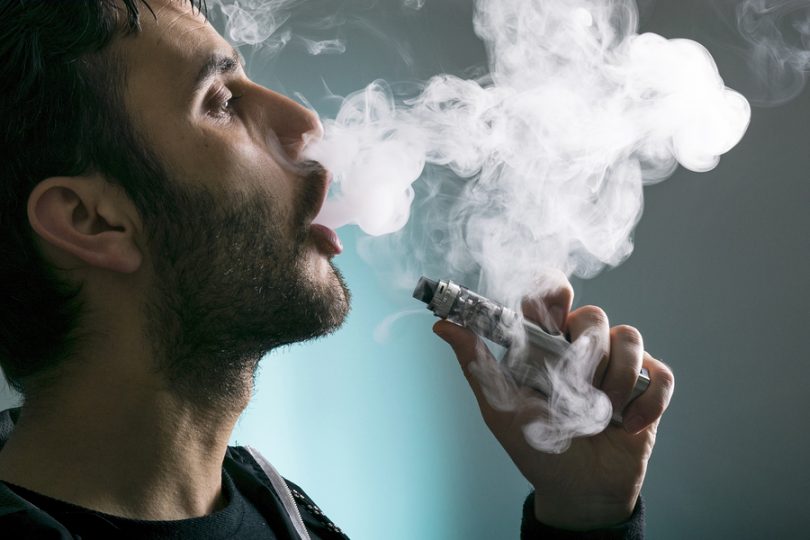Vapes seem to be a smoker’s dream. Yet, considering the potential side effects of prolonged use and the creation of a new generation of smokers in our youth are among its greatest risks. Instead, it can be quite a nightmare.
Vapes are an electronic nicotine delivery system, which can include personal “vaporizers”, “vape” pens, e-cigars, e-hookah, JUULs or “vaping” devices. These products produce an aerosol by heating a liquid that usually contains nicotine – the same addictive drug found in traditional cigarettes and tobacco products – along with other flavorings, chemicals, and nano-particles including metals like lead, nickel and tin. The aerosol is inhaled into the user’s lungs creating an experience, similar to a traditional cigarette, nicotine “hit”.
“Vapes are not a safe alternative to combustible cigarettes,” said Christine O’Meara, director of the Georgia Cancer Center’s Office of Cancer Information and Awareness. “Nicotine is an addictive drug and is especially harmful to the adolescent brain. It is also not safe to smoke e-cigarettes during pregnancy because the nicotine has an effect on the developing fetus.”
Thanks to national public awareness and public health efforts, there’s been a culture change in most of America. Across the nation, establishments like restaurants and bars have banned smoking inside. Several health insurance companies and employers offer incentives to quit smoking. The CDC reported that since 2005 the number of people who currently smoke has decreased by 5%. Those who do still smoke have their reasons to continue to do so. According to Smokefree.gov, stress is one of the primary reasons that people continue to smoke. However, due to sleek device designs and enticing flavor options, JUULs and other vapes have quietly eclipsed traditional cigarette smoking among adolescents.
“We want to help people identify healthy things they can do instead of using e-cigarettes,” said O’Meara. “We want them to think about some alternative behaviors they can do instead of ingesting an addictive chemical and other healthy ways to reduce stress.”
Some ways to manage tobacco cravings are:
- Chose a healthy option like almonds or baby carrots. Or, chew gum.
- Brief physical activity just until the craving passes. Try running in place or taking a short walk.
- Learn deep breathing exercises or keep a journal. If you keep a journal, record if there was a craving trigger and reasons why you quit smoking. This can help you identify triggers to avoid them and remind yourself how important quitting tobacco is to you.
- There are mobile apps that can track cravings for you, set quit goals and provide daily motivations.
“In public health, we want to train our clinicians in counseling techniques that work to help people identify what alternative behaviors they can do to reduce stress,” said O’Meara.
It’s never too late to quit tobacco. Consider talking with your primary care physician about your intentions to quit and if ask if you should get a lung screening.
The Georgia Cancer Center offers cessation classes that are designed to help you develop a quit plan and gain skills to cope with nicotine addiction and tobacco-use habits. The classes are available for individuals 18 years of age or older and will help you achieve your quit goals and a healthier lifestyle.





